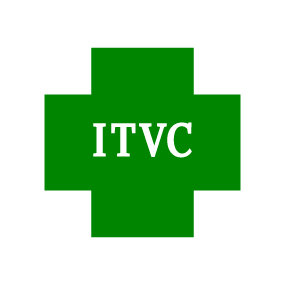Travel Safe -Useful Information
Travelling overseas is great opportunity, travelling becoming more frequent and easy with advent of modern aircrafts and cruise liners and lots cheap travel deals.
Nearly 7 million Australia’s travel every year internationally.
Travelling could be for various reasons business, holidays, visiting Friends and Relatives (VFR), charity workers, Backpack, student travel with gap year, school children for various projects.
Apart from this there are various other groups notably cultural tourist, pilgrimage tourism( like going to Mecca and Hajj in Saudi Arabia, Kumbamela in India or catholic S gathering for world youth days) Other events like Mardigras attract large number of people from various countries
Other travel groups includes Ecotourism (travelling with nature related travel),Medical tourism ( people traveling from developed country to developing country for Various Dental and surgical work like cardiac bypass or joint replacement ) there is also sex tourism, Adventure tourism, Wilderness tourism
Apart from this there is large number of people travel for various sports related events like football, soccer, cricket, Olympics.
Travelling from Developed country to under developed or developing country poses challenge to travelers mainly due to poor hygiene due food and water sanitation and cultural changes
There are four important Things travellers should be aware during travel
Food and water Bourne diseases, insect’s bites carrying various diseases, accidents and STD
Food and Water Bourne diseases are major problems.
Hepatic A ,typhoid Cholera advice are more commonly seek Disease ,apart from these there are other food and water borne diseases like Hepatitis E ,paratyphoid, listeriosis, shigella and E coli related disease also transmitted from food and water Your travel doctors will explain during the visit
It is always good habit to use bottled water for brushing teeth and drinking ,ice cubes could be made out of wrong water add to soft drinks and alcohol or cocktails , Salad eating washed in not clean water can also pose major threat.
Majority of the traveler suffer traveler's Diarrhoea Caused by E Coli bacteria due to food and water borne disease.
Insect Bourne diseases poses major threat for traveller, notably Malaria, Dengue fever Japanese Encephalitis and more recently emerging disease like Chikungunya transmitted from mosquitoes bites
People travelling to some part of Africa and South America also not only exposed mosquitoes borne disease like yellow fever But also diseases like Trypanosomiasis transmitted from TseTse fly
West Nile river disease also major threat in developed country (Western USA).
Travellers should also be aware of animal bites like Rabies which is very much under estimated disease Almost 55 to 60000 thousand people die every year in the developing countries. Unfortunately rabies Contracted from animal bite like dogs, bats is100% fatal
Although it is rare for traveller to die of rabies it is essential traveler travelling for long time or camping in the national parks or involved with animal handling or working with animal must seek travel heath advice about rabies vaccinations
Malaria is mosquito borne disease, is still major threat in the developing countries nearly 1.5 million die every year from the. Disease malaria is predominant in the rainy season, people travelling to the malaria infected area should take precautions and seek medical advice prior to travel
Accidents are major problem in developing countries,
More traveller die of accidental deaths than any other diseases
Traveller should be aware of local rules and regulations, driving and road crossing with out local knowledge could pose major threat
Swimming in the unfamiliar places can also pose problem.
STD (sexually transmitted disease) is another major threat to certain group of Traveler's
Taking necessary precautions and practicing safe sex and avoiding getting Tattoo can prevent diseases like Hepatitis B, hepatitis C and HIV and other STDs
Healthful Hint: Ordering food when traveling where sanitation is suspect
Choose foods that are too hot to eat immediately. When traveling, nearly all upset stomachs are due to microorganisms (and their toxins) found in food. Sufficient heat kills organisms and neutralizes toxins.
The fact that food is still piping hot indicates that it has just been heated and did not remain standing after preparation to be contaminated by flies or people’s hands. Ideal food items are soups and stews, ones that contain only small pieces of solids. (Large pieces of solids may remain insufficiently cooked in the center.) Thin omelets and items boiled in oil or water also tend to be safe. A rare exception is certain large reef fish in the tropics: snapper, grouper, amberjack, and others. These fish produce toxins that are not destroyed by heat. Well-prepared smaller fish are generally safe.
Choose foods carefully at buffets, especially outdoor ones in hot weather. Buffets require much handling to prepare and may remain on tables for hours, increasing the risk of lapses in sanitation plus exposure to insects and heat. Avoid foods that are warm, but not hot; “warm” allows organisms to multiply rapidly. Be cautious when selecting a dessert. Desserts are generally eaten last, but are often placed on the table at the same time as other items. Organisms also multiply rapidly in creamy products.


